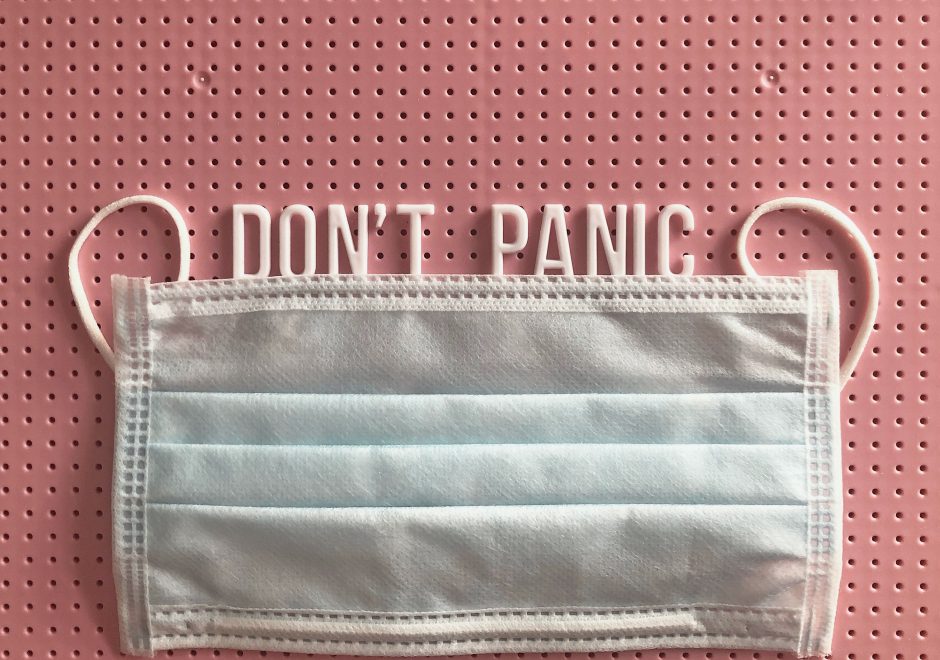The views expressed in our content reflect individual perspectives and do not represent the authoritative views of the Baha'i Faith.
Panic or calm. Fear or hope. Despair or confidence. Our emotional reaction to the COVID-19 pandemic involves a matter of choice.
It’s vital to understand that our thoughts have power and hold great sway, not only on ourselves but on those around us.
Abdu’l-Baha, the son and successor of Baha’u’llah, the prophet and founder of the Baha’i Faith, advised:
When a thought of war enters your mind, suppress it, and plant in its stead a positive thought of peace. These thoughts, vital and dynamic, will affect the minds of all with whom you come into contact, and like doves of peace, will grow and increase till they spread over all the land.
He similarly exhorted us:
I charge you all that each one of you concentrate all the thoughts of your heart on love and unity. … A thought of hatred must be destroyed by a more powerful thought of love.
Mother Teresa understood the power of our thoughts. She once declared: “I will never attend an anti-war rally; if you have a peace rally, invite me.”
At first the difference might elude you, but ponder these thoughts for just a little while and you may come to understand that it is more effective to approach problems with a positive outlook. I recall someone once suggesting that rather than considering whether a glass is half-empty or half-full, just be grateful that the glass holds something – in other words, develop an attitude of gratitude.
So how are we to deal, emotionally, rationally, and spiritually, with this global pandemic? All over the world it has upended so many aspects of our lives, no matter if we are rich or poor, regardless of our race, religion, nationality, political affiliation, age or gender.
RELATED: Reflections on the Coronavirus and the Oneness of Humanity
To start, we can all try to heed Abdu’l-Baha’s injunction:
Be thou loving to every afflicted one, a dispeller of sorrows to every grieved one, a consolation to dejected hearts, a blessing to unfortunate souls.
The phrase that keeps coming up in regards to the global situation is “We are all in this together.” This is an indication that we need to realize and act on the fact that what happens to one of us ultimately affects us all, therefore when we are cognizant of the needs of the whole, when we support one another and act for the good of all, problems will be resolved faster and more efficiently.

This brings to mind the lessons of the book my Literati Book Club read last year. A difficult read, Caroline Moorehead’s A Train in Winter relates in graphic detail the inhumane conditions [understatement] that a group of women endured after being arrested and sent to a Nazi concentration camp for their activities in the French Resistance during World War II. While many other prisoners, under conditions of torture (mental as well as physical) and starvation, concentrated on their own personal needs, these women understood that their best chances at survival came through solidarity and their efforts to ensure the safety of each other. Moorehead tells us:
Not one of the women believed that she would survive alone. It was only when they were together … that it was possible to ward off desperation.
Some of the survivors shared stories of how they supported each other. One example was what they did during the 3:30 a.m. roll calls, when the underfed, under-clothed women were forced to stand outside the barracks in the freezing cold and snow, some without socks, others with no shoes, sometimes until the sun came up:
From the first, the French women clung together in groups, each slipping her hands under the arms of the woman in front, the rows constantly changing place so that no one spent too long on the outside, ‘We held on to each other … If someone was particularly cold, we just kept them in the middle.’ Using Charlotte’s watch, they decided that they would swap places every fifteen minutes.
They saved some of their own meager rations to share with others who they deemed were in worse shape than they were. One woman explained that:
… all individual egotism seemed to vanish and that, stripped back to the bare edge of survival, each rose to behavior few would have believed themselves capable of. ‘We didn’t stop to ask ourselves whom we liked and whom we didn’t … It wasn’t so much friendship as solidarity. We just made certain we didn’t leave anyone alone.’
It seems to me that this pandemic, as serious as it is, is no worse – just different – than what those women suffered. Their attitude, their choice of being defiant rather than cowering in fear, their understanding that their own survival had a better chance if they made efforts towards the survival of the others, provides us with the blueprint for how to go about our lives now.
Let’s be cognizant of our own actions and follow the advice of the health experts. Let’s be practical and thoughtful in our approach to the current situation. We can ensure that our family has sufficient supplies on hand to wait out the crisis without overbuying and exacerbating the shortages caused by panicked shoppers who are hoarding or, even worse, hoping to make a profit by buying out supplies and then reselling them at a much higher price. If we have neighbors who are unable to provide for themselves, we can, when buying for ourselves, pick up what they need and deliver it, or we can order online and have it sent to both ourselves and to them. If we have neighbors who absolutely must go out to their jobs but have children who can’t attend school, perhaps, if we aren’t at high risk ourselves, we can offer to care for the children while the parents are gone.
We can all pray for the quick resolution of this crisis, or if not religious at least keep our thoughts positive rather than sending out negative energy. Do it for the love of God and the love for all creation. As Abdu’l-Baha said: “Thoughts of love are constructive of brotherhood, peace, friendship, and happiness.”
While praying, helping others, or maintaining a self-quarantine, try not to fret about boredom or “cabin fever.” Just keep these words of wisdom (author unknown) in mind:
PLEASE READ SLOWLY
Listening to music is not canceled.
Quality time with our families is not canceled.
Reading a book is not canceled.
Sharing with friends is not canceled.
Singing out loud is not canceled.
Laughing has not been canceled.
Sharing hope with others has not been canceled.
Let’s embrace what we have.

















Comments
Sign in or create an account
Continue with Facebookor